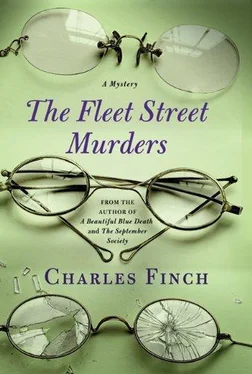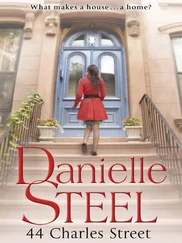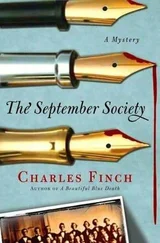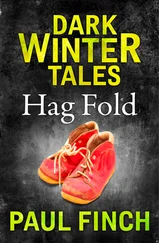Charles Finch - Fleet Street murders
Здесь есть возможность читать онлайн «Charles Finch - Fleet Street murders» весь текст электронной книги совершенно бесплатно (целиком полную версию без сокращений). В некоторых случаях можно слушать аудио, скачать через торрент в формате fb2 и присутствует краткое содержание. Жанр: Исторический детектив, на английском языке. Описание произведения, (предисловие) а так же отзывы посетителей доступны на портале библиотеки ЛибКат.
- Название:Fleet Street murders
- Автор:
- Жанр:
- Год:неизвестен
- ISBN:нет данных
- Рейтинг книги:5 / 5. Голосов: 1
-
Избранное:Добавить в избранное
- Отзывы:
-
Ваша оценка:
- 100
- 1
- 2
- 3
- 4
- 5
Fleet Street murders: краткое содержание, описание и аннотация
Предлагаем к чтению аннотацию, описание, краткое содержание или предисловие (зависит от того, что написал сам автор книги «Fleet Street murders»). Если вы не нашли необходимую информацию о книге — напишите в комментариях, мы постараемся отыскать её.
Fleet Street murders — читать онлайн бесплатно полную книгу (весь текст) целиком
Ниже представлен текст книги, разбитый по страницам. Система сохранения места последней прочитанной страницы, позволяет с удобством читать онлайн бесплатно книгу «Fleet Street murders», без необходимости каждый раз заново искать на чём Вы остановились. Поставьте закладку, и сможете в любой момент перейти на страницу, на которой закончили чтение.
Интервал:
Закладка:
Charles Finch
Fleet Street murders
PROLOGUE
It was late in the evening, and a thin winter rain beat down over London’s low buildings and high steeples, collecting in sallow pools beneath the streetlights and insinuating its way inside the clothes of the miserable few whom fate had kept outside. Inside Charles Lenox’s house, however, tucked on a short lane just off of Grosvenor Square, all was warm and merry. It was Christmas and only a few short days from 1867. There had been a long, hearty meal, a delicious pudding, and more than a few glasses of wine, and now just two people, the amateur detective and his older brother, Sir Edmund Lenox, sat up, sipping short glasses of a digestive anise and reminiscing about holidays past, as men of their age, just on either side of forty, often will at Christmas. Animated disagreements and frequent peals of laughter filled the long, narrow dining room, as a fire died behind them. Midnight had long passed, and Edmund’s wife and two sons were asleep upstairs. It was an hour since Lenox had walked his betrothed, Lady Jane Grey, back to her own house next door.
They looked alike, these two men. Both had brown hair, slightly curly, and handsome, kind faces. Edmund, who preferred rural to city life, possessed a haler and ruddier aspect, while Charles, who spent so much of his life pondering the enigmatic, seemed more thoughtful and more introspective. Since the death of their parents, the two brothers had spent their holidays at Lenox House, their family’s ancestral home in Sussex. This year, though, Edmund, who was the Liberal Member of Parliament for Market house, had been held in London by pressing political matters, and Charles had suggested they might alter their tradition and gather under his roof. He was especially happy that they did so because it was a kind of consecration of his very recent engagement to Jane, one of the oldest friends of both brothers. In all the happy hours since she had assented to his proposal, seeing her smiling face ranged among his family’s at the candlelit supper table was the happiest. As he sat with Edmund now his heart felt full, his life blessed. It was wonderful.
Not very far away, however, was a different, unhappier scene. Near Savile Row a solitary man was sitting in a small but sumptuous apartment, decorated with gold clocks and hunting prints and bearing all the signs of bachelorhood that long tenancy can bestow on a set of rooms. A pair of mended trousers sat next to a half-full wineglass on the table before Winston Carruthers, writer and London editor of the conservative newspaper the Daily Telegraph. He was a short, fat, red man, wheezy and ill looking. Ignoring his landlady, who came in to rake the coals and shot him a look of hatred as she departed-a look not unusual for her countenance but more intense than usual, perhaps because it was Christmas Day-Carruthers wrote furiously on a large sheet of paper, turning and folding it again and again to fit all he had to say.
They would be the final words the journalist wrote.
“… iniquity not seen in this age or several since,” he scrawled and then with a great gesture of finality laid down his pen, blotted the paper, and leaned back in his chair to read it. He held the document very close to his face and several times just pulled it back in time to avoid covering it with his wet cough.
“Damn draft,” he said, looking about disagreeably. “Martha? Is that you?”
There was no reply to his question, however, and he went back to reading, occasionally pausing to sip the hot negus that had gone lukewarm as he worked. Nearing the end of the sheet he began a short addendum.
It was as he wrote this that he heard a footstep behind him, and before he could turn he felt a sharp, rending pierce in the back of his neck. Futilely he clutched his throat. In an instant he had fallen to the floor.
Behind him a man moved quickly to look through the papers in the apartment, leaving nothing out of its place but nothing unchecked. At last he gently plucked from the still warm hand the broad sheet of paper Carruthers had been writing on.
In an aristocratic voice, the murderer said, without pity in his voice, “Stupid sot. I hope you burn in hell.”
He put the paper back and fled to the open window, the one from whence the draft that had irritated Carruthers in the final moments of his life had come. The man unrolled a rope ladder and climbed down quickly. The apartment was only on the second floor.
After he was gone Martha came in, ignoring the body and the long knife protruding from its back, and went to the window, took the rope ladder back up, and after raking the coals again began the slow process of burning it, as downstairs her children slept.
At the same time about a mile across London, Simon Pierce was sitting at his desk in an austere-looking home office that seemed deliberately antithetical to the extravagant gold and mahogany of the rooms of Winston Carruthers. There were plain oak walls, ringed with a series of severe family portraits, and a very quiet sort of fire burning in front of two empty armchairs.
Technically Pierce was married, but he rarely saw his wife above once a fortnight. She was a fat woman of limitless vanity, who rather than minimizing her bulk by dressing plainly seemed more by the day to resemble a very loud floral-patterned sofa. Most of her evenings were spent at her father’s house in Lamborn (which in simple honesty she wished she had never left, to make the obscure middle-aged marriage that was all her family’s long lineage had been able to buy her). Pierce, on the other hand, often slept on the long cot in his office at the Daily News. There, unlike in his own home, he was a man of importance, the international editor and a frequent columnist on the editorial page. The couple had a daughter neither much cared for. At eighteen she had married and fled to India. They received twelve punctual and polite letters a year from her. The most recent had wished them a Happy Christmas, and given Pierce an unexpected and genuine pang for her. The softness of age, he figured. Simon Pierce was not far from his fifty-fifth birthday.
In looks he was tall, thin, and gray, with bifocals that forced him at all times to lean slightly forward. These made him particularly unpleasant to talk to at parties, where one felt inspected and analyzed at every conversational turn. The excellent free education at his school in Norfolk had paved his way to Oxford, and from there he went straight to London, full of ambition and a belief in hard work that had quickly been borne out by his career’s trajectory. The Daily News was a liberal, if not radical, paper, in line with the views of its founder-Charles Dickens. Pierce had molded himself to the paper’s beliefs, rather than the other way around. He was a powerful man now.
Unlike Carruthers, he was not writing on that Christmas evening but reading. The Bible was in his hands. Pierce was, unusually, a Roman Catholic. Even on Christmas he would probably have preferred the office to his home, but he had instead endured a long supper with his wife, who was full of her father’s stories. After she had gone to bed he had come into his study restless. He took no wine and felt clearheaded.
Just as he turned to the first page of the Book of Matthew, Simon heard a soft knock at the front door of the house. The servants were asleep, and with a weary sigh he rose to his feet and made his way along the corridor between his office and the door. It was a sign of disrespect, he felt, that there was no scurry of foot audible below stairs. It didn’t occur to him to wonder why the visitor had knocked, which was sure to raise the notice only of someone nearby, rather than rung the bell, which would have sounded directly in the servants’ quarters. Simon Pierce rarely felt entirely comfortable anywhere other than the office or church, and it was with anxiety that he approached the front hall.
Читать дальшеИнтервал:
Закладка:
Похожие книги на «Fleet Street murders»
Представляем Вашему вниманию похожие книги на «Fleet Street murders» списком для выбора. Мы отобрали схожую по названию и смыслу литературу в надежде предоставить читателям больше вариантов отыскать новые, интересные, ещё непрочитанные произведения.
Обсуждение, отзывы о книге «Fleet Street murders» и просто собственные мнения читателей. Оставьте ваши комментарии, напишите, что Вы думаете о произведении, его смысле или главных героях. Укажите что конкретно понравилось, а что нет, и почему Вы так считаете.












